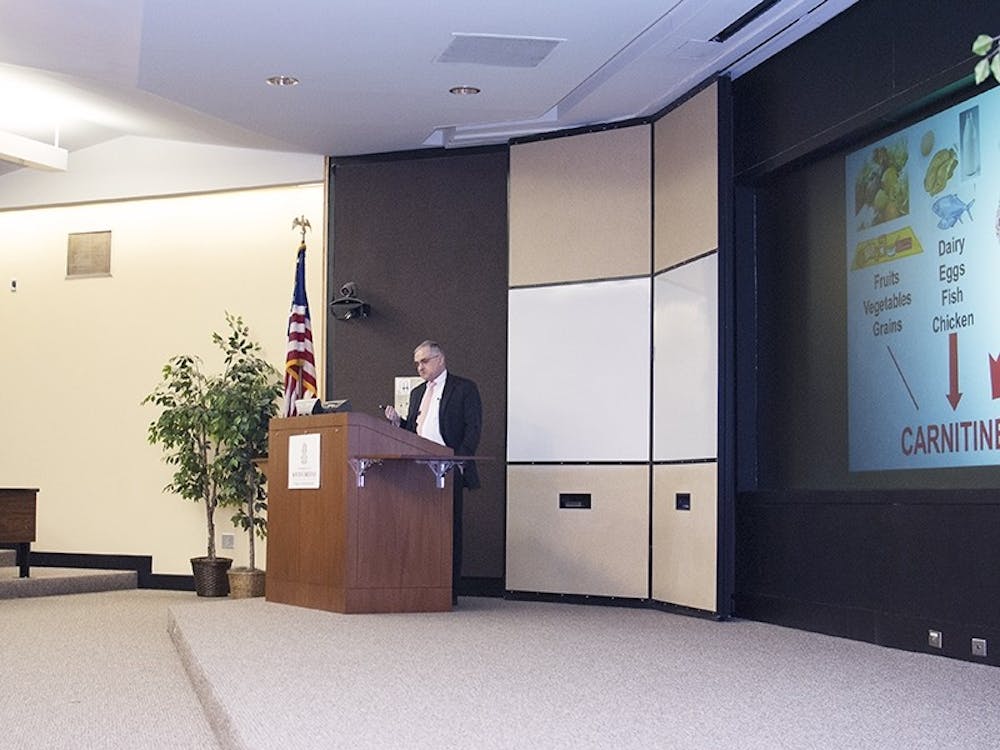Baylor’s Beaudet speaks as Caskey lecturer Thursday evening
A noted researcher and professor said that adding more of a special ammonium compound during pregnancy could reduce cases of autism.
Dr. Arthur L. Beaudet of Baylor’s Department of Molecular and Human Genetics spoke Thursday evening on his autism research. It is part of the annual Caskey Lecture series, hosted this year in the Lumpkin Auditorium in the Moore School of Business.
Too little of the quaternary ammonium compound carnitine in the brain, also known as neuronal carnitine deficiency (NCD), can be a contributing cause of autism in children, Beaudet said, and a possible preventative measure would be to supplement diet with foods containing more carnitine.
“Carnitine supplementation during infancy would prevent 10 to 20 percent cases of autism,” Beaudet said. “The children will only benefit if the treatment is done very, very early.”
According to the Centers for Disease Control (CDC), one in 88 children have been diagnosed with an autism spectrum disorder. There has been a 23 percent increase since the CDC report on the disorder in 2009 and a 78 percent increase since its first study in 2007.
Beaudet, who graduated from Yale University, presented a study focused primarily on young boys with a mild form of autism.
“We think that this will provide a clue for the milder form of autism,” Beaudet said.
Beaudet also raised what he said is a common question: Why are so many more boys affected than girls?
Citing his research data, he said the reason might be that females are intrinsically better than males at moving carnitine across the blood-brain barrier.
The Caskey Lecture series was established in 2004 by USC graduate C. Thomas Caskey, M.D. The series serves as a way for medical professionals to present issues regarding the effect that biotechnology has on today’s medical field.

